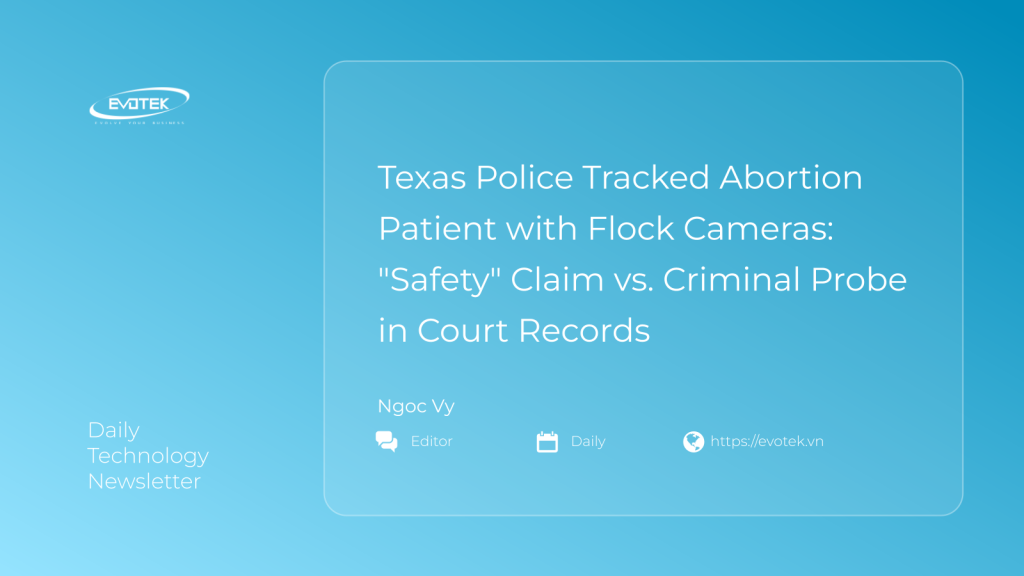Newly revealed court records have exposed a stark contradiction in the official narrative surrounding the Johnson County Sheriff’s Office’s surveillance of a woman who underwent a self-administered abortion in Texas. While authorities and the surveillance technology provider, Flock, initially asserted their actions were solely for the woman’s “safety,” these documents suggest a far more serious intent: a “death investigation” that implied consideration of criminal charges.
This significant development follows a report from May by 404 Media, which highlighted the sheriff’s office’s use of a nationwide network of Flock cameras—a powerful, AI-enabled license plate surveillance tool—to locate the woman. At the time, officials maintained that the search was non-criminal. The sheriff stated publicly that concerns were focused on the woman’s well-being, specifically the risk of severe bleeding, rather than any criminal activity. Flock itself corroborated this stance, stating, “she was never under criminal investigation by Johnson County. She was being searched for as a missing person, not as a suspect of a crime.”
Court Documents Reveal Criminal Investigation
However, the recently unearthed court records directly challenge these previous assurances. These documents indicate that law enforcement was not merely conducting a benevolent search for a person in distress. Instead, the Johnson County Sheriff’s Office was actively pursuing a “death investigation” into the abortion itself. This critical detail signals that, contrary to public statements, the woman may have been considered for criminal prosecution in connection with her self-administered abortion.
The revelation intensifies ongoing concerns regarding the use of advanced surveillance technologies, such as Flock’s extensive network of license plate readers, in highly sensitive cases involving personal medical decisions. It underscores the critical need for transparency from law enforcement agencies about the true nature and intent behind their surveillance operations, especially when public safety justifications diverge sharply from documented legal processes.
This evolving situation in Texas raises profound questions about individual privacy, the oversight of law enforcement, and the future of reproductive rights in an era where AI-powered surveillance cameras play an increasingly central role in investigations.

 日本語
日本語 한국어
한국어 Tiếng Việt
Tiếng Việt 简体中文
简体中文